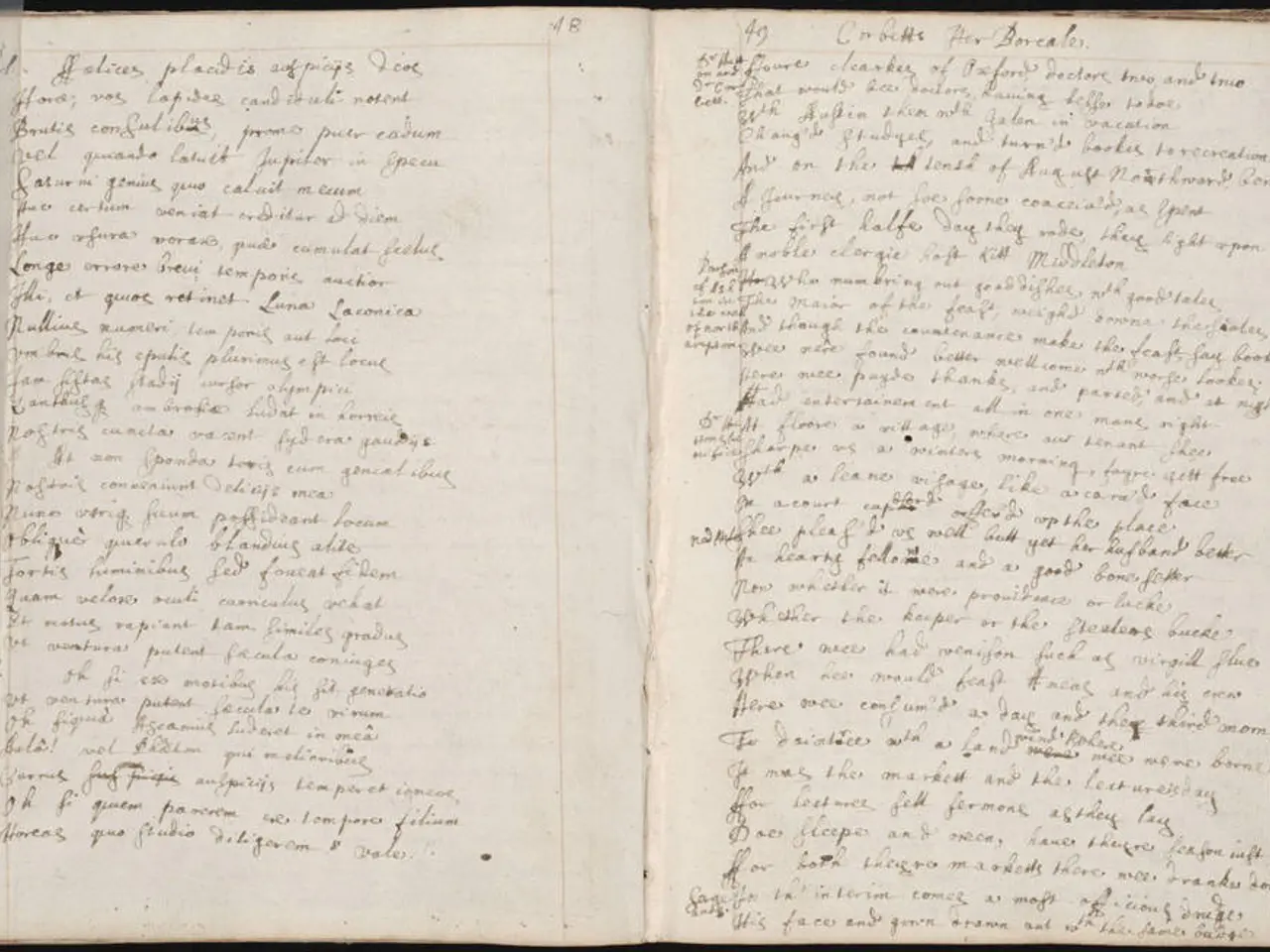Employing Mythological Elements for Enhanced Literary Composition
Mythology in Modern Culture: A Vibrant Blend of Ancient Tales and Contemporary Storytelling
In the realm of education and popular culture, mythology continues to captivate audiences across the globe. Universities offer a variety of courses delving into the rich narratives of Greek, Roman, Egyptian, and general mythological studies.
One fascinating aspect of mythology is its ability to explain natural phenomena and cultural norms within various cultures. For instance, Hermes, the messenger god of the ancient Greeks, could be considered a god of the internet due to his focus on rapid communications. This connection between Hermes and modern technology is an intriguing example of how mythology can be reinterpreted to resonate with contemporary audiences.
The allure of mythology extends beyond academic circles, finding its way into literature, film, and popular culture. Disney's Hercules (1997), a humorous animated film loosely based on Greek mythology, offers a stylized reimagining of ancient tales through a 1990s pop culture lens. More recent adaptations include Brett Ratner's Hercules film (2014), which presents a more action-centric version of the mythic hero Heracles, and Marvel Cinematic Universe's Thor: Love and Thunder (2022), which introduces Hercules into its mythic universe, blending Norse and Greek mythologies in a contemporary superhero film context.
Rick Riordan's Percy Jackson & the Olympians book series, which translates Greek mythology into a contemporary fantasy setting, also explores the enduring appeal of mythology. The series features a modern demigod protagonist and nuanced characterizations of mythic figures, including Hercules.
Creative educational projects, such as the creation of new Egyptian gods and goddesses, demonstrate mythology's continuing cultural influence. These projects engage students by reimagining myths through storytelling, character creation, and art.
Modern adaptations of mythology are not confined to Greek and Roman mythologies. Robert Eggers' 2023 Nosferatu reinterprets vampire folklore rooted in Slavic mythology, showcasing how mythical themes survive and evolve through repetition and creative variation in modern cinema.
Trickster gods, a common theme in mythology, can be found in 49 different cultures, from Loki in Norse mythology to Raven and Coyote in North American Indigenous mythologies. The trickster concept has evolved from classic myth to folk-tale to modern cartoon, with characters like Brer Rabbit and Bugs Bunny embodying the mischievous spirit of these ancient figures.
In conclusion, mythology serves as a rich resource for authors, particularly those writing fantasy. Its timeless narratives offer endless possibilities for reinterpretation and adaptation, ensuring that these ancient tales continue to captivate audiences across mediums and cultures.
- Incorporating diverse aspects of culture, contemporary storytellers find innovative ways to blend mythology with modern lifestyle, as seen in the adaptation of Greek mythology into the fashion-and-beauty world through Rick Riordan's Percy Jackson character designs.
- Beyond books, films, and literature, mythology also influences entertainment through music, as witnessed in the use of mythological themes in the songs and lyrics of various artists, thereby weaving ancient narratives into contemporary music and thereby lifestyle.






